There are a lot of programs, websites, and companies out there trying to help international students with their career development. It can be challenging to know who or what is right for you. We’ve made up my guide that recommends the best tools, services, and resources for international students looking to develop in their careers.
International students seeking part-time jobs, internships, Curricular or Optional Practical Training, or employment might benefit from Career Development Assistance. International students frequently face unique and unexpected career and employment challenges during their job search. Career Development Assistance can assist international students in learning how to improve their work and employment alternatives and how to use all of their experiences to enhance future career skills.
Career Development Assistance for International Students
With the assistance of a professional advisor, you could start adjusting to living in a foreign country while learning about in-demand talents that top employers require. Your advisor will guide you on how to build these talents and support you in finding internships or part-time jobs. They may also assist you with writing a résumé and cover letter and applying for employment, and preparing for interviews.
You can also get assistance with applications for international students and connect with employers to find the right job for you. Advisors also assist you in determining the right strategies for adhering to the employment conditions mentioned on your student visa to keep your position as an international student.
Understanding Oversea Employment
You can apply for a wide range of jobs for international students, with different expectations depending on the type of role and individual employers you are interested in. Understanding the various job types is critical in determining the best career for you.
FULL-TIME EMPLOYMENT
As an international student, you usually are not allowed to work full-time during the academic semester at your university or college. When your semester ends, such as during the summer, you may be permitted to work full time depending on your student visa (if you don’t enrol in summer semester classes).
PART-TIME EMPLOYMENT
Your visa allows you to work part-time while studying as an international student, but only for 20 hours per week. Part-time jobs are generally easier to manage along with your studies because they require less time commitment than full-time work.
Many students work part-time jobs to earn their living. Students may work part-time to help pay for their expenses or personal reasons during their studies. Students often use part-time jobs to gain work experience, build resumes, and develop relationships and references that can be useful when moving to full-time employment.
ON-CAMPUS VS OFF-CAMPUS EMPLOYMENT
Keep in mind that student visas also decide whether international students can work on-campus jobs. This includes any job done on the campus of your university or college and directly benefits the school or its students. If your student visa allows you to work off-campus for a while, you must first receive permission from your university or college counsellors.
INTERNSHIPS
Several academic degree programs include internship or co-op requirements as part of your education, making internships great to gain work experience. Internships offer short-term work tasks with a local organization, usually junior-level employees, sometimes with course credit. Whether internships are required or optional for your degree, consult with your advisors about any visa work limits.
Job Search Sources for International Students
Here is a list of the top job search sources for international students that could be useful to you:
- Cturtle: Cturtle is an international student job board. Since starting in 2016, Cturtle has made 250,000 connections between international students, international graduates and international alumni with top employers worldwide.
- International Alumni Job Network (IAJN): This is the most established network globally for professional networking and joining a global community of international alumni. Since its founding in 2015, over 1.5 million international alumni have engaged in this community. They run professional and social networking events and connect alumni for job opportunities.
- Job Plus: If you are an international student, fresh graduate, or experienced alumnus looking for employment opportunities, JOB+ is the best site to connect with recruiters worldwide. They will help you find suitable jobs in whatever country you want to work in.
- UK Alumni Job Network (UKAJN): The UK Alumni Job Network is the only network connecting alumni from all of the top universities in the United Kingdom. Do you want to join this community? It’s free! Register here.
Creating a Resume/CV and Cover Letter
You must send your résumé while applying for a job or an internship. A one-page resume lists your professional experiences and qualifications, similar to a CV (curriculum vitae). A cover letter is your written statement for the job you’re looking for, and it should be tailored to the role and employer in question.
Many international students are unfamiliar with the requirements for resumes/CVs and cover letters to employers, but they are essential for global student employment.
Cover letters should be adjusted to each job application and match your talents and experiences to the position’s specific responsibilities. A cover letter’s objective is to provide a complete overview of yourself to the organization and show why you would be the best candidate for the position by showing how you would perform in the organization and role.
Most cover letters are one page in length and cover critical aspects of the job’s responsibilities and how your professional skills allow you to perform well in these areas.
Job Interviews
You will be called in for an interview if the business considers your application suitable for a job. An interview is an opportunity for the company to find more about you personally than what is on your CV.
You may be required to take one or more employment tests before or even during your interview, depending on the job you want to apply for. These tests determine whether you are perfectly suitable for the position and organization by evaluating your skills and knowledge in various areas.
Here are some tips to keep in mind when you prepare for a job interview:
- Learn more about the company and its products or services by doing some research. Checking out their website is an excellent way to learn more about them.
- Make sure you’re dressed professionally. Some companies demand formal workplace wear (a suit and tie), while others want a more smart-casual look. When the hiring manager contacts you for an interview, you can confirm this with them.
- Make sure you’re prepared for a variety of interview questions. Some companies may focus more on yourself and your personality, while others may ask questions primarily about your abilities and experiences.
By studying aboard, you can build essential skills and gain professional experience working with multicultural teams and top companies such as Google, Facebook, Tesla, etc. Career Development Assistance will help you showcase your skills and talents to potential employers and find the right opportunity to pursue your dream job.
Let’s check the ranking and reviews of the most popular universities at UniAdvisor






Recent Comments